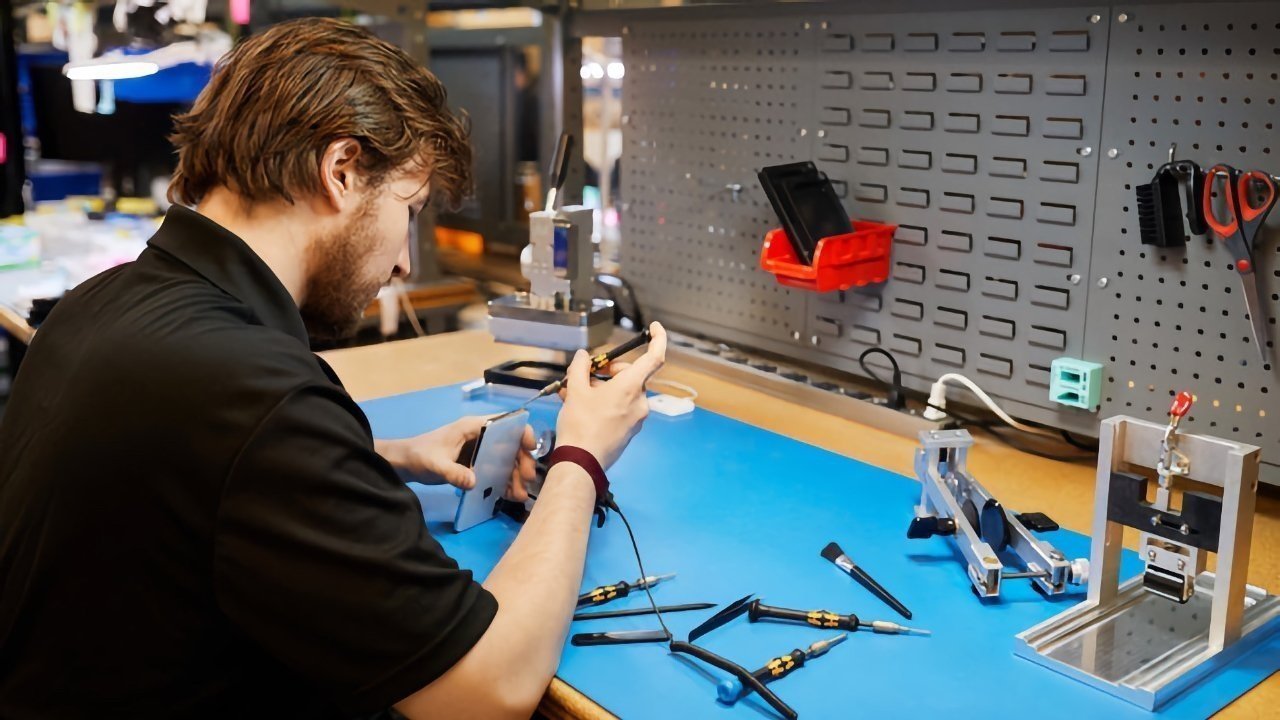Fixing an iPhone

Repair outfit iFixit and the Public Interest Research Group have asked the FTC to introduce new Right to Repair rules that could make it easier for device owners to fix broken hardware themselves.
iFixit and PIRG submitted a petition to the Federal Trade Commission on Tuesday, asking for the creation of rules to maintain the public has the ability to repair hardware, or the so-called "Right to Repair."
In a blog post outlining the reasoning, iFixit explains that it's petitioning the FTC because it is the strongest organization of consumer protection, and because it needs to update its rules.
The FTC has performed a number of actions to help further the Right to Repair movement, including investigations into the matter that resulted in the Nixing the Fix report of 2021. At the time, the FTC found there was "scant evidence to support manufacturers' justifications for repair restrictions.
Following a call by President Biden in 2021 to do more to enforce rules on the right to repair, the FTC went after a number of companies the following year. Harley-Davidson, Weber, and Westinghouse included language in their manuals saying customers must use manufacturers' own repair services, which goes against a law from 1975 that made it illegal to void a warranty for independent repairs.
"But, the FTC can only take action on something if they've got relevant rules in place," explains iFixit. "And a lot of the things that manufacturers are doing to block repair are new enough that the FTC never ruled against those things before."
Examples given by iFixit of such techniques are seemingly Apple-specific, including the use of proprietary screws like Pentalobe screws, as well as Apple's parts pairing system that effectively blocks repairs without Apple's intervention.
The New Rules
The FTC petition wants the regulator to "engage in a rulemaking process to create new Right to Repair rules to deal with these new blocks that manufacturers have put in place."
The list of suggested rules include ensuring "consumable components ought to be replaceable and readily available throughout a product's usable lifespan," with commonly broken parts handled in the same way. Consumers should also be allowed to choose to take damaged products to a repair shop of their choice or fix it themselves.
In cases where manufacturers stop supporting a product, key functions "ought to remain intact," and the hardware should remain repairable by independent repair shops, the petition adds. Those repair should also should not be "required to report customers' personally identifiable information to the manufacturer."
Going against parts pairing, one line states "Identical components from two identical devices ought to be interchangeable without manufacturer intervention.
There is also the suggestion that a repairability scoring system gets created for appliances, administered by the Energy Guide program, which could be placed on the yellow Energy Guide stickers applied to some appliances.
"We live in a world surrounded by things that should last and be fixable, but instead, end up thrown away too soon," according to PIRG Right to Repair campaign director Nathan Proctor. "As the FTC and others have noted, that drains our wallets, fuels an electronic waste crisis and undermines local repair shop businesses. The FTC clearly plays a role in fixing these problems, allowing us to fix our modern devices."
While there is a chance the FTC will respond positively to the petition, it could take the regulator years for any action to become useful to the public. It could be "a few years" before results come to light, iFixit admits.
An anti-Apple petition
The petition doesn't specify Apple directly, but its inclusion of fighting parts pairing and the availability of components have been a problem for the movement's dealings with the iPhone maker.
Apple has frequently been the target of complaints from iFixit, as well as third-party iPhone repair shops, citing delays in parts processing and steep costs.
For its part, Apple has made some changes in how it operates to make repairs easier to undertake. It has launched self-service repair programs, voiced support for a California right-to-repair bill, and has insisted its part and documentation availability will widen soon.